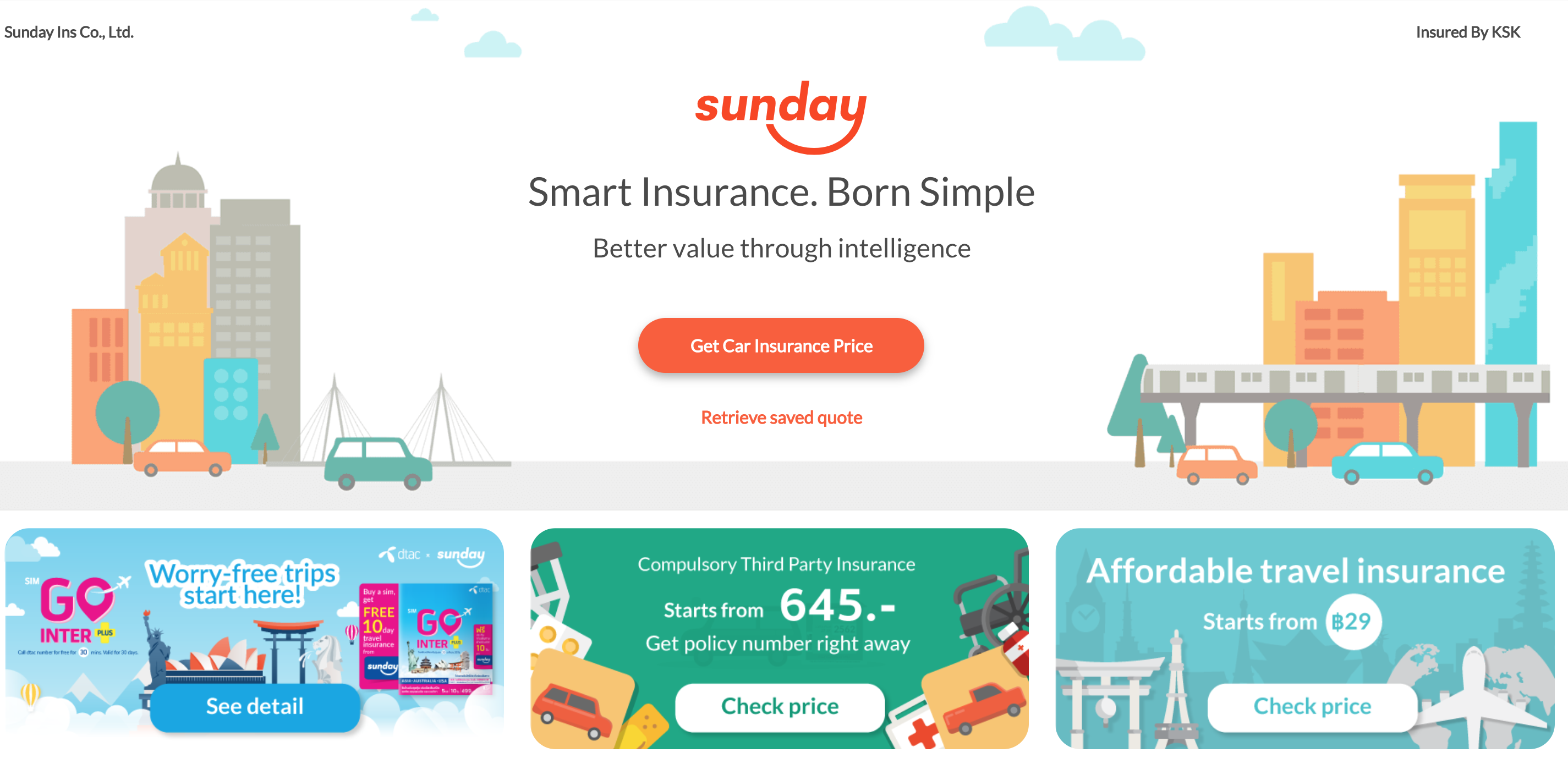Case Study: Sunday Delivers Lower-Cost Premiums Using AWS
Source: Amazon
Sunday Ins Co. Ltd
, headquartered in Thailand, is an insurance company that uses technology to boost the efficiency of traditional insurance services. For instance, Sunday uses machine-learning algorithms to provide customers with a broader range of insurance policies, covering properties and possessions, and highly customized premiums that deliver greater value to customers. The company wants to grow its business organically and through partnerships, and it plans to expand its operations to other countries around Southeast Asia. 

The Challenge
InsurTech companies are revolutionizing the insurance industry by applying machine-learning algorithms to determine financial risk, and using that information to offer highly personalized policies at lower premiums. InsurTech companies—which are often startups – run their machine-learning algorithms on cloud-computing infrastructures to avoid the capital costs of on-premises data centers and to get their businesses off the ground quicker.
Cindy Kua, chief executive officer of Sunday, explains, “Cloud computing makes business sense to us for several reasons. It supports our goal to be asset-light and to avoid the costs of a data center, so that we can focus on developing our technology and delivering greater value to our customers. Also, when we expand into new markets, we want to do it quickly without having to find new IT facilities.”
Sunday began looking for a cloud service to run the machine-learning software behind its premium-calculating engine. Says Kua, “The cloud infrastructure had to be highly scalable, reliable, and fast. Insurance quotes need to be calculated in milliseconds, and at any one time the infrastructure could be calculating the premium for one policy or for millions.”
Why Amazon Web Services
When Sunday assessed the services of public cloud providers, the company saw that Amazon Web Services (AWS) was more flexible about the machine-learning software that it could use. “Other cloud providers tried to lock us into their preferred machine-learning solution,” says Kua. “However, AWS gave us the freedom to choose whatever solution we wanted—in this case, H2O.ai.”
Sunday ran a trial of the AWS Cloud. “Working with the AWS Cloud was very easy,” says Kua. “There were lots of software development kits available for us to automate our deployment.” The company worked with AWS Partner Network (APN) Premier Consulting Partner Cloud Kinetics, which helped Sunday design its first AWS infrastructure. “We had our production environment up and running on the AWS Cloud in just two months. Since then, we’ve been developing our AWS infrastructure in-house,” says Kua.
Sunday’s machine-leaning software for calculating premiums runs across several clusters of Amazon Elastic Compute Cloud (Amazon EC2) instances. When a request for a quote comes in from the website, the machine-learning algorithms process millions of records of historical data stored in the Amazon Relational Database Service (Amazon RDS). AWS Lambda executes the code triggering the machine-learning algorithms and delivers the finished quote to the customer.
All the while, Elastic Load Balancing is distributing incoming request traffic, and Amazon CloudFront is maximizing speeds across the AWS Cloud. The company also uses Amazon Elastic Container Service (Amazon ECS) to update its applications. “We run a DevOps program where we build and test new software each night, and Amazon ECS then automates the deployment,” says Kua. “It makes development very efficient.”
The Benefits
Sunday is enabling customers to obtain insurance policies that reflect the underlying risks more accurately. This often results in 10 to 20 percent lower premiums than with traditional insurers for lower-risk groups, such as married couples or experienced motorists. Kua comments, “By using AWS, Sunday is modernizing the insurance market in Thailand—bringing the power of InsurTech to bear on insurance so that customers get better deals.” In addition to better deals, Sunday offers a wider range of insurance policies than traditional insurers in Thailand. That’s because with the machine-learning capabilities of its AWS infrastructure—which maintains 99.999 percent uptime—the company can precisely measure the financial risk of a broader range of events. “We can create new types of products such as our Weekend Car Insurance policy, where you don’t pay for the days when you’re not driving,” says Kua.
Since launching in August 2017, Sunday’s revenue has been increasing by 30 percent month-on-month as the company attracts more customers thanks to the performance of its machine-learning software running on AWS. In addition, Sunday has expanded its business during the same period. “Thanks to the scalability of our AWS infrastructure, we can increase our compute resources to meet our expansion,” says Kua. “For example, AWS Lambda processes thousands of variables, which generates billions of calculations per customer quote. And as the number of quote requests rises, AWS Lambda simply scales to meet that demand. Furthermore, the low network latency of the AWS Cloud ensures that requests are processed in milliseconds.”
Looking ahead, Sunday expects to easily scale its operations to other countries in Southeast Asia. Not having an on-premises data center means it doesn’t have to find IT facilities in every new country – avoiding the management and maintenance costs associated with it. “We can scale our IT operations in no time with AWS,” says Kua. “It highlights one advantage of being asset-light.”



